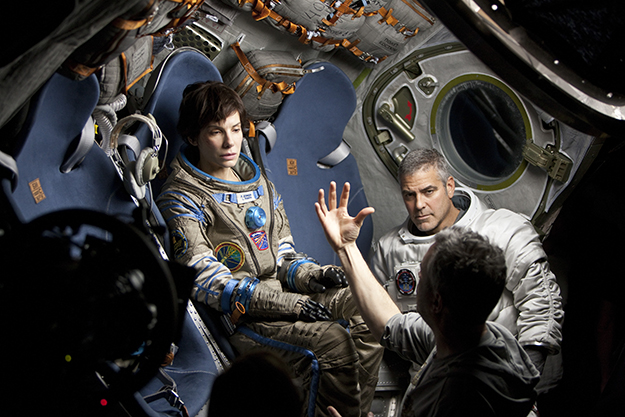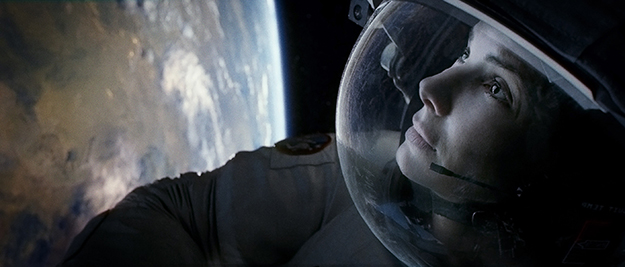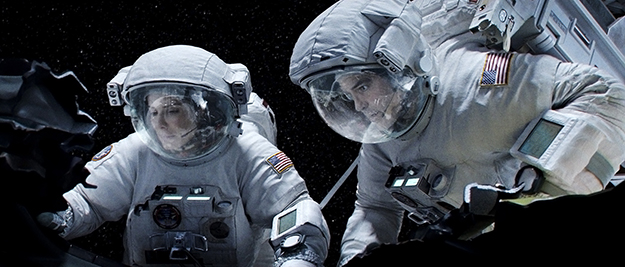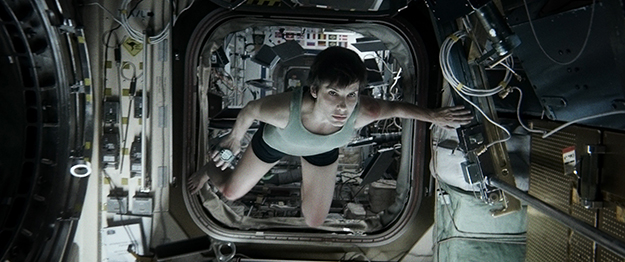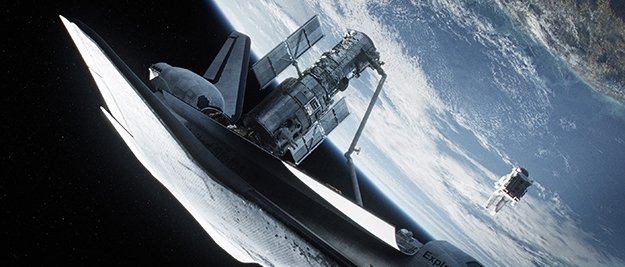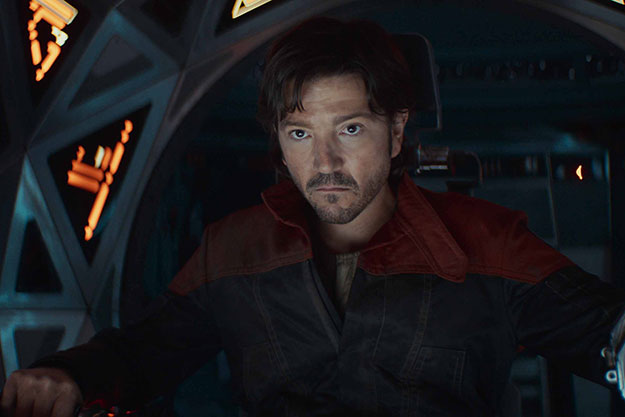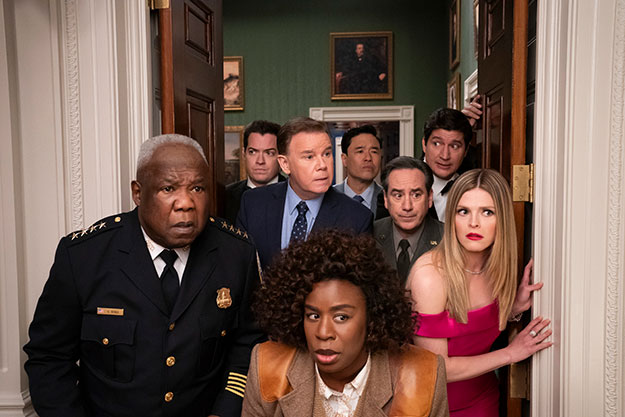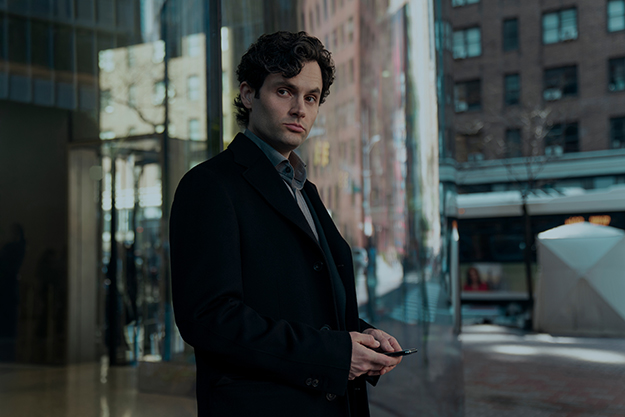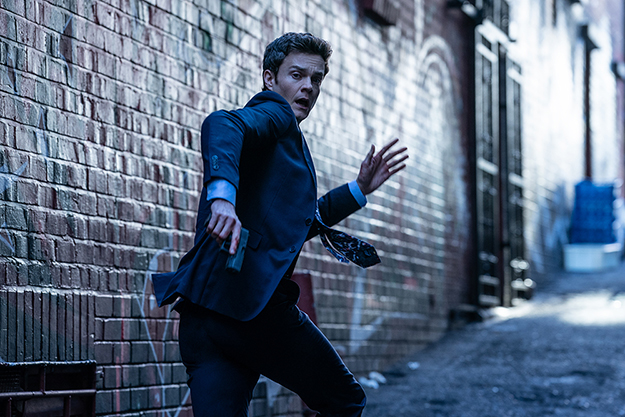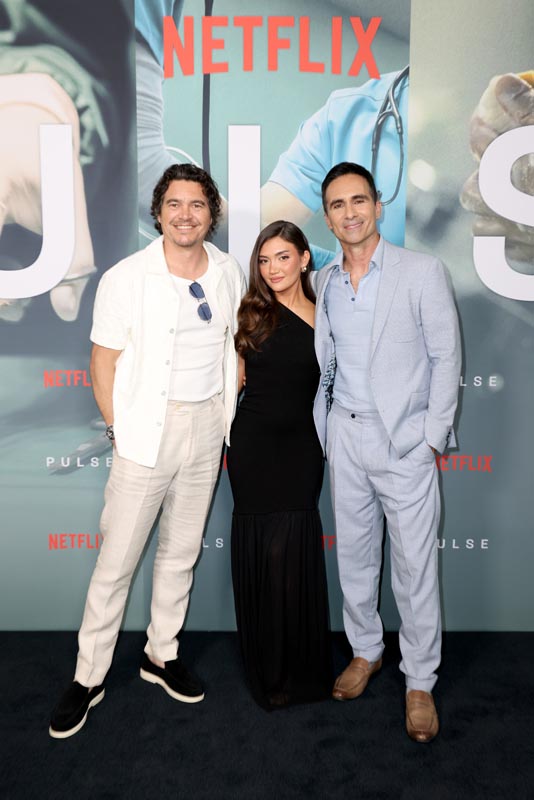Sandra Bullock, Alfonso & Jonas Cuarón Talk About Making 'Gravity'
I am a big fan of Alfonso Cuarón and Gravity took my fandom to a new level. I have to say, that even if I don't like 3D very much (besides some animated film exceptions), Gravity has by far the best use of 3D since Hugo and Avatar. The world of Gravity is rendered in a spectacular but yet believable way, and the film never overuses the 3D technology for the sake of a gag. Great thrills with great drama, elevated by great performances from Sandra Bullock and George Clooney, makes Gravity my favorite film of 2013.
During a press conference at the film’s press day, writer/director Alfonso Cuarón discussed making the film and working with his son Jonás Cuarón on the script. Actress Sandra Bullock talked about what attracted her to this role among other things. Check out what they all had to say after the jump.
Alfonso, in most depictions of space we have a sense of up, down, left and right, and your movie effectively does away with that. What kind of changes did you have to make in your way of thinking to convey the physics of space properly?
Alfonso Cuarón: That was the biggest challenge since early on. Even before getting into the technique of solutions when we were conceiving the choreography, our brain thinks from the standpoint of gravity, of horizon and weight. It was a whole learning curve because it’s completely counterintuitive, and we started choreographing with pre-vis, meaning animations. The problem is that graph people, people that draw or animators, they learn how to draw based upon horizon and weight. It was a big, big learning curve with experts coming to explain the physics of Zero G and what would happen, and you could tell who was the new animator in the room because it was a guy who was completely stressed out and wanted to quit. Eventually it starts to get like second nature, but it was tough for them.
Sandra, can you talk more about what you had to do training wise? It must’ve been a different type of training with the spinning. And also, I know you did this with a green screen and when you first saw it, the very first time, what was your reaction the film?
Sandra Bullock: Well if there had been a green screen it would’ve been nice. There was just blackness or bright white lights or metallic objects. Basically what Alfonso said was you had to retrain your body from the neck down to react and move as though it’s in Zero G without the benefit of Zero G moving your body, because everything that your body reacts to with a push or a pull on the ground is completely different than it is in zero g. So to make that second nature just took training and then weeks of repetition and then syncing it with Alfonso’s camera and the mechanics and mathematics of it all and then separating that from your head where you had to connect with the emotion and tell the emotional story. There were various contraptions that existed on the soundstage which that, when I first saw them, you just made them your friend as quickly and as physically as you could because if you didn’t, they were so confusing and complex. It was such a collaborative experience.
Alfonso Cuarón: Yeah but you were very involved from early on not only in the animations but with blocking and restaging because everything was going to be pre-programmed. We had conversations with those on the rigs and those doing the stunts and said, “Okay what is it exactly that you have to reinforce in your body to hold this thing?” It was very specific, the workout that you were doing.
Sandra Bullock: It’s just core strength. From a dancer’s perspective, it’s just making sure you weren’t going to hurt your body and you can be very agile and flexible to maintain your body in a rig that’s load bearing. The load is your weight for long hours at a time. There was going to be tweaks and things like that.
What was your reaction to the movie when you first saw it?
Sandra Bullock: The first time I saw it all put together was in Venice. I always say that an actor, when they see themselves for the first time, they spend all that time watching and hating themselves and picking apart their performance and wanting to quit. There was no time to pick apart one’s performance here though because you were inundated with the extreme beauty and emotion that he [Alfonso] created visually. It was turned into such an emotion and such a visceral, physical experience in this movie. I don’t how they did it with sound and coming here behind your head, and all of a sudden you found yourself affected in ways that you were not planning on being affected, so we had that same reaction. I think George and I both went, “Wow!” You can’t really speak after the film is over, so I think I was lucky enough in my career to finally be able to view a movie I was in as it was supposed to be viewed, as a newcomer.
Alfonso, can you talk about some of the challenges you faced striking the right balance between the sound, visual design, the atmosphere and the storytelling?
Alfonso Cuarón: Well all of those are the tools for the same thing, to convey the emotional journey. I think that each one of those tools on their own, they are meaningless. They can be cool, but they don’t convey the emotions you want. The script was in many ways solid in terms of the structure. From the moment that we finished the first draft, pretty much nothing changed in terms of each one of the moments and the set pieces. What changed quite a lot was with the involvement of Sandra and George because suddenly it was the clarity of this emotional journey and how we were going to convey those emotions.
In many ways that was the big hanger on which all these other elements start to hang from. It was very strange because as technological as this film sounds, it was a big collaboration between artists in the end. Everybody was trying to make life easier for the other part, knowing that the essence of this was the emotional core that happened with the collaboration between the actors.
Steve Price (the composer) was collaborating with the sound designers, and they are usually always fighting in the mixing room because the composer wants the music to be heard and the sound designers want the sounds to be heard, but here they were working together on all of this stuff. But that started early on with the selections of moods and music that Sandra had in each one of the scenes when she was performing. It was a very holistic process in many ways.
Sandra, this had to be a very emotionally grueling role for you. Is there something that you learned about yourself that you have taken with you from this experience?
Sandra Bullock: Well I’m sure. I mean you never quite know what the change is until one day you wake up and go, “Wow! I’m reacting to things differently. I feel differently.” I have always said that the experience of meeting an artist that you are in awe of and hope to create with one day is usually disappointing because you put them up on a pedestal and then you’re like, “Wow, that’s not a nice person” (laughs). But the exact opposite was true in the meeting with Alfonso in that I got to meet a human being whose evolution as a human being is so bright. There was just the level of kindness and collaboration and I think the general sense of the unknown bonded everyone together on such a human level. If you have an experience that spoils you, it ruins it for a lot of other people and I can honestly say that that happened.
What it’s like to be the only actress on screen and sort of as an actress perform for a great deal of the movie by yourself?
Sandra Bullock: I never thought about that. I never thought about being the only person onscreen. You had this story, the elements that Jonás and Alfonso wrote. That technology was a constant character around you. I always went back to what was in their heads that I need to honor and help execute, so I never once thought that I’m the only person because there’s George who is a vital part of this film and who represents life and this outlook on living that, if you don’t have that, this film could not exist. So I never thought of it until I started doing press and now everybody’s freaking me out going, “How does it feel that this rests on your shoulders?” But I still don’t think about it because I feel like I’m third or fourth on the list of characters before the story, the emotional visuals, the sound and the experience of what they created.
What kind of research you did for the film, people at NASA that you talked to, and how that sort of helped you understand this character, what she’s going through?
Sandra Bullock: We had a lot of technicians around us that helped me literally with knowing where buttons were in the ships and what I would do. I was more concerned about body work and how it worked in Zero G and there’s no one to ask because you have people explaining what happens and it just wasn’t registering. My brother-in-law was hanging out with a friend of his at this wine packaging place and the guy said his sister was an astronaut, and my brother-in-law said that my sister-in-law is getting ready to be an astronaut. So he got my number to Katie (Coleman) who was at the ISS (International Space Station) at the time, and she called and I was able to literally ask someone who was experiencing the things that I was trying to physically learn about how the body works and what do you do. What do I need to reteach my body physically to do that cannot happen on earth that we need to get the puppeteers and everyone together on the same page so that we think this way on earth? It’s just the oddest thing to reprogram your reactions. It was just a really coincidental, fortuitous thing that happened over wine that got me the final piece of information that I needed.
In your conversations with Katie Coleman, what fascinated you most about her job and the psychology of being an astronaut?
Sandra Bullock: We had only one phone conversation. Apparently they are not allowed to just accept calls whenever you feel like calling the ISS (laughs), and our work schedule was crazy so our connection was just like ships passing in the night. My character wasn’t an astronaut. My character wasn’t someone who wanted and aspired to be an astronaut. All those questions were for George and that was the research he had to do. My character was just someone who happened to be in a position where it was easier to train her to just execute this one mission and then go home. But I think what I did learn from them which was so beautiful, and which again applies to George, is just their emotional point of view on life; why they go up there to see how things operate in space so we all benefit from it when they get back.
Alfonso, what was your experience with the NASA astronauts like and how did it inform the way you wrote the script?
Alfonso Cuarón: Well it’s very humbling because you can write a whole fiction and you’re talking with people that have done that thing in real life. Obviously there were certain things that informed the script. In an early draft we had scenes that, after talking with one astronaut, we realized they were absolutely moronic. They were like “that stuff would never happen.” Even though this film is not a documentary, it’s just a fiction, we wanted in the frame of that fiction to make everything as plausible and as accurate as we could. Definitely with the physics of space we tried to be super accurate, but there are so many technical aspects and physics that are involved in traveling into space that we had to take some outward leaps in terms of fiction.
The truth of the matter is that when you’re talking with those people, you don’t care about your movie anymore. You just want to hear about what they’ve come to do. You want all the details, and it’s amazing. Another thing that I have to say is that in real life they have hundreds of alternative procedures for each thing that happens in space. In 40 years of space exploration, there have been only a handful of incidents. That’s because these people are so well-trained in what they are supposed to do, and they have to have alternative thinking about many procedures. These people are really remarkable, and the space program is full of people that are so qualified that you just feel so stupid. You feel like a movie director (laughs).
Alfonso, I read you were inspired to write Gravity after reading your sons script Desierto about two immigrants stranded in the desert. How is it working with your dad and you with your son? And Sandra Bullock had a little Spanish line in the movie was that something Alfonso you threw in as an homage to your Mexican heritage or is that something Sandra just improvised?
Alfonso Cuarón: What do you think?
Sandra Bullock: He loves Mexico.
Alfonso Cuarón: That line was actually pretty funny because it used to be "I don't speak chinese" so she said "no hable chino." But yeah when Jonas gave me Desierto, I read Desierto to give him notes then I said well I don't have that many notes but I want you to help me write something like that. What I mean something like that I, to write something that you're on the edge of your seat that is really tense and suspenseful, he called it a roller-coaster ride but at the same time it's a deep intense emotional ride and interweave between the two of those is magic elements which are told through visual metaphors. I asked him to please do something like that.
Jonás Cuarón: Working with him was a great experience because we had this conversation about doing a movie in this style. It is a big challenge to on the one hand have a nonstop action element and be able to juggle themes. I guess the biggest challenge was to engage the audience on an emotional level, and I think that never really came to happen until we started working with George and Sandra. I learned a lot from my dad and also a lot from George and Sandra. I really figured out how a character can come to life. It’s a movie that was a huge gamble, and I’m glad that she (Sandra) didn’t know that it was a big gamble because the whole movie was on this character’s shoulders. She really manages to engage the audience for 90 minutes.
Alfonso Cuarón: The experience was just two writers working together.
Sandra Bullock: If I could also say about Jonas, there is a complimentary piece, a film piece that he did. I speak to an Inuit on earth, and he went there and shot this absolutely beautiful, piece of loneliness and emptiness on earth, where this man is calling from. It’s so beautiful. I get goose bumps thinking about it, and you’ll hopefully be able to get to see it. The talent is just overwhelming. It’s a beautiful piece that complements what happens in the film, that you’ll get as a little gift, later on.
Gravity opens in theaters on October 4th.






